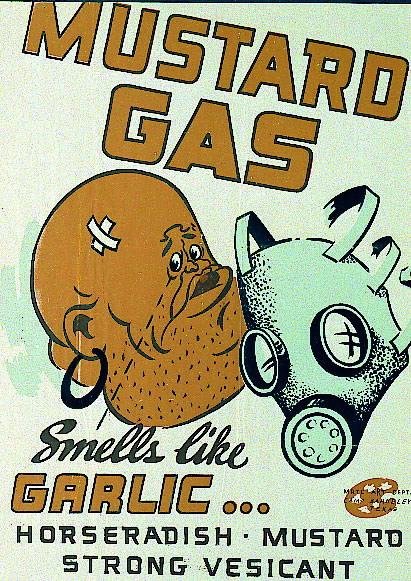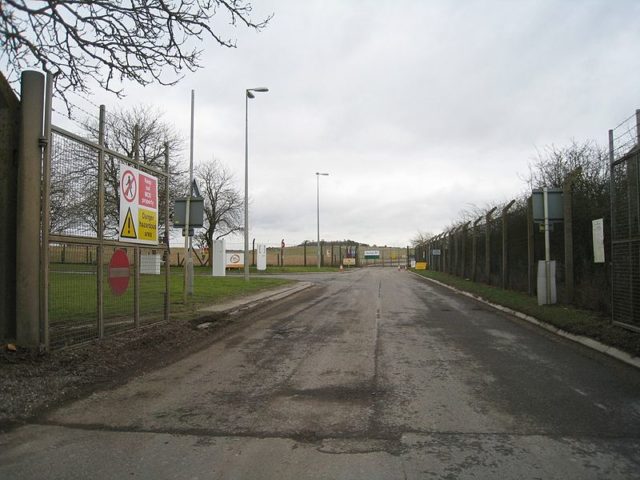Newly unearthed documents show the Nazis weren’t the only ones to use gas chambers during World War II. It has been revealed that British military scientists forced hundreds of allied Indian soldiers to enter chambers that exposed them to mustard gas.
According to The Guardian, the British military did not check up on the poisoned soldiers after the experiments to see if any illnesses were created from the mustard gas. It is now understood that mustard gas can be a catalyst for cancer and other dangerous diseases. Many subjects suffered horrible burns all over their skin, and the gas severely damaged their genitals.
These effects left Indian soldiers across the camp in agonizing pain for days and even weeks. Some subjects had to be taken to the hospital until their condition could stabilize.
The trials used by scientists have been thrown into the spotlight because of documents discovered at the National Archives. The documents show that the trials in World War II were the first full-scale mustard gas experiments on record.
The most brutal aspect of the experiments is that the Indian troops were actually serving under the command of the British military because, at the time, India was under colonial rule.

The British continued these experiments for over a decade across the 1930s and into World War II. The studies took place in a single installation on military grounds in modern day Pakistan.
These inhumane tests were performed by scientists sent from England to the Porton Down installation, a branch responsible for chemical warfare. The men who had been sent on the mission to create devastating poisonous gasses were assigned to utilize the chemicals in the fierce battle against Japanese forces.
Even though Porton Down was well known by the public, the terrible Indian tests occurred in the dark corridors of the establishment, leaving the world in the dark over the torture that took place in Pakistan.
Porton had a large program to conduct chemical testing on humans. A surplus of over 20,000 British fighters were forced and subjected to chemical warfare testing involving poison gasses between the years of 1916 and 1989. In short, Britain was willing to go to any lengths to research chemical warfare.
Although the Indian soldiers allegedly gave their permission to be subjected to chemical testing, they claim that they were tricked into it. This, in turn, decimated their health for the remainder of their lives.
The newly-surfacing reports of the trials conducted in Pakistan reveal that in some cases Indians forced into the experimentation were exposed to heavy doses of mustard gas and were given nothing but a respirator. The British military utilized these extensive mustard gas tests to understand and determine the amount of mustard gas needed to generate casualties in the depths of battle.
Finally, in 1942 the chemical warfare scientists shared information that there had been a high amount of burns due to mustard gas among loyal British and Indian soldiers. Several cases were so extreme that the test subjects had to be transported and cared for in the hospital.
Reports indicated that burn patients experienced high levels of misery, sparking depression from the incredible amount of discomfort. Scientists suggest the discomfort was so severe that the only way to comprehend these wounds would be to actually experience the testing themselves.
Soldiers were documented to have been hospitalized up to a week after they were ordered into gas chambers wearing some drill shorts and simple cotton based shirts so the scientists could gauge the effect chemical effects had on the test subject’s eyes.
When the trials began during the early 1930s, chemical scientists were interested to see if race and skin color had any effect on the reaction to mustard gas. This was directly linked to the danger the Japanese Empire posed to the safety of Britain and its colonies. During this stage of experimentation, five hundred British and Indians were used to expand the knowledge and effectiveness of mustard gas.
Lawyers defending British troops’ rights and health indicate that it would be incredible if any Indian troops actually consented to walk into poisonous gas chambers. No one would have truly agreed to such testing beforehand if they were given the slightest hint of the torture they were about to experience.
The Ministry of Defense also had no evidence stating whether or not the Indian soldiers were volunteers, leading to heavy speculation that there were no documents of consent before testing. Instead, the Ministry stated that the studies had taken place in a “chemical defense” installation that included psychological tactics, preventative research, and weapons development.
Porton officials’ arguments and protection for the integrity of the institution point out that these experiments occurred in a time of war and genocide. These subjects and tests couldn’t be analyzed according to the standards of the modern era.

Founded in 1916, Porton Down is by far the oldest chemical warfare installation on the planet. Porton was a huge developer and manufacturer of mustard and nerve gas. In the 1940s and 1950s, the installation began manufacturing biological weapons, including anthrax bombs. However, all the darkness that clouds the institution has created some crucial advances for the modern day. Porton’s current responsibilities are to develop defensive equipment that helps protect armed forces against biological and chemical warfare. Porton believes that the British armed forces are equipped with some of the best defensive equipment in the world.
